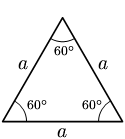 Materialism is a current of Philosophy that arises strictly and exclusively as a counterpart to another, called idealism, to answer that fundamental question of philosophy about what comes first: thought or the material.
Materialism is a current of Philosophy that arises strictly and exclusively as a counterpart to another, called idealism, to answer that fundamental question of philosophy about what comes first: thought or the material.
Then and as it is already clear from the name that was attributed to him, materialism gives absolute pre-eminence to the material world, being that the material will always precede thought.
Materialism or those who bet on a materialistic conception of the world consider that the universe is material, that is, it exists outside and independently of the consciousness that thinks about it and consciousness and thought are only properties of this in an elevated state. In addition, it promotes that matter was not created from nothing, that it will certainly continue to exist in eternity and that both the world and its regularities can be known.
Although many believe otherwise, because they do not know it, materialism is not an issue that began to worry and occupy the attention of the philosophers of the golden age of Greece, but the Egyptian and Babylonian cultures of the early second millennium already believed and they supported the material origin of many natural phenomena.
Meanwhile, and already in Ancient Greece, where the issue was widely addressed, it will be the thinker Democritus who deepened the matter further, promulgating the atomistic theory of the structure of matter. According to Democritus the cardinal principle of the world is the vacuum and the atoms that move in it, find and form different bodies and the soul of men, which disappears when the body dies.
And on the other hand, also at the same time, we have Aristotle who, although less committed than Democritus, also promoted materialism considering that all things had a raw material at their base, although in his thinking this is characterized by its lack of form and determination.









